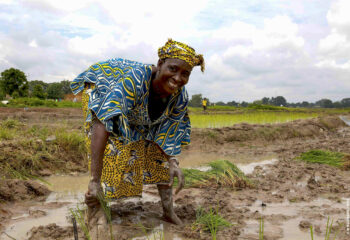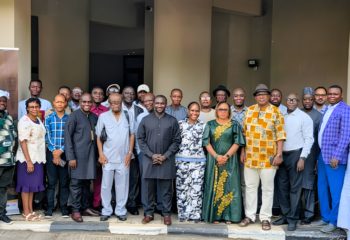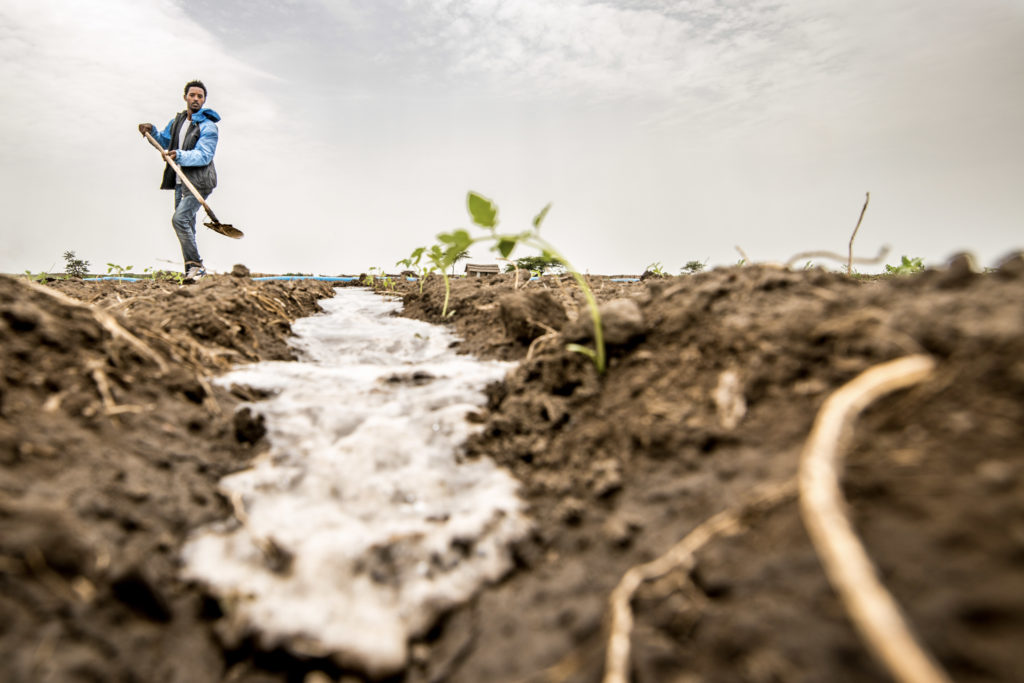
April 22 is celebrated internationally as Earth Day, also known as Mother Earth Day. Since its founding in 1970, Earth Day has served as a reminder of the importance of the Earth’s health for people, planet, and the environment.
Earth Day 2022 festivities are centered around the theme “Invest in Our Planet.” At IFDC, we envision healthier soils and plants for a food-secure and environmentally sustainable world. As much of our organization’s work focuses on supporting and developing soil fertility and plant nutrition solutions around the world, we understand that investing in our planet means investing in soil health. As inhabitants of Earth, it’s time to recognize that the answer to many of our planet’s issues lies beneath our feet. Time and time again, improving soil health has proven itself as a key strategy for reducing issues of climate change, biodiversity loss, and food and nutrition security.
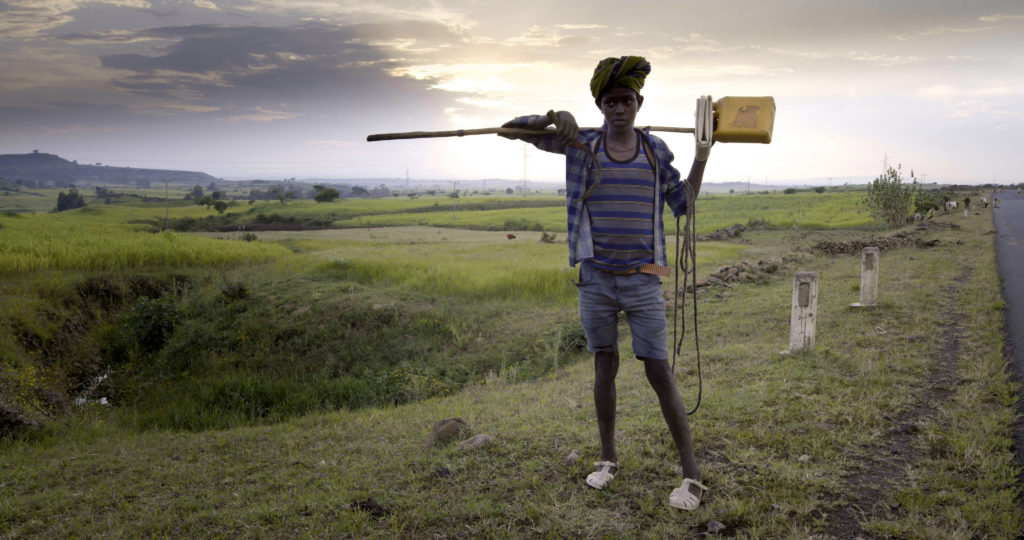
Why are global investments in soil health necessary? Imagine the Earth’s crust is the skin of an apple. Proportion-wise, the Earth’s crust is actually much thinner than the skin of an apple, at about 50-100 kilometers deep, yet soils that are feasible for production only make up the first 1-2 kilometers. In fact, this tiny layer of soil supports all life on Earth. Just like an apple’s skin protects the fruit inside, soil not only protects the Earth and helps fight many of its issues but also provides nutrients and the microbiome essential for life on the planet. The health of our soil is critical; if we don’t take care of it, then it will be unable to play its crucial role.
Deforestation, soil degradation, and poor management practices threaten our soil’s health every day. We must work to preserve soil health and invest in the answer that lies beneath our feet, so the soil can continue taking care of us. There’s only one skin to protect each apple, and our Earth only has one crust. We must protect this resource at all costs, so it will continue serving our Earth’s population for generations to come.
Jimmy Carter once said, “Like music and art, love of nature is a common language that can transcend political or social boundaries.” We’re all inhabitants of the same planet, so join us in our mission of preserving the soil for our planet’s health. No matter where you live, natural resources, including soil, benefit your daily life, so we must come together and protect them.
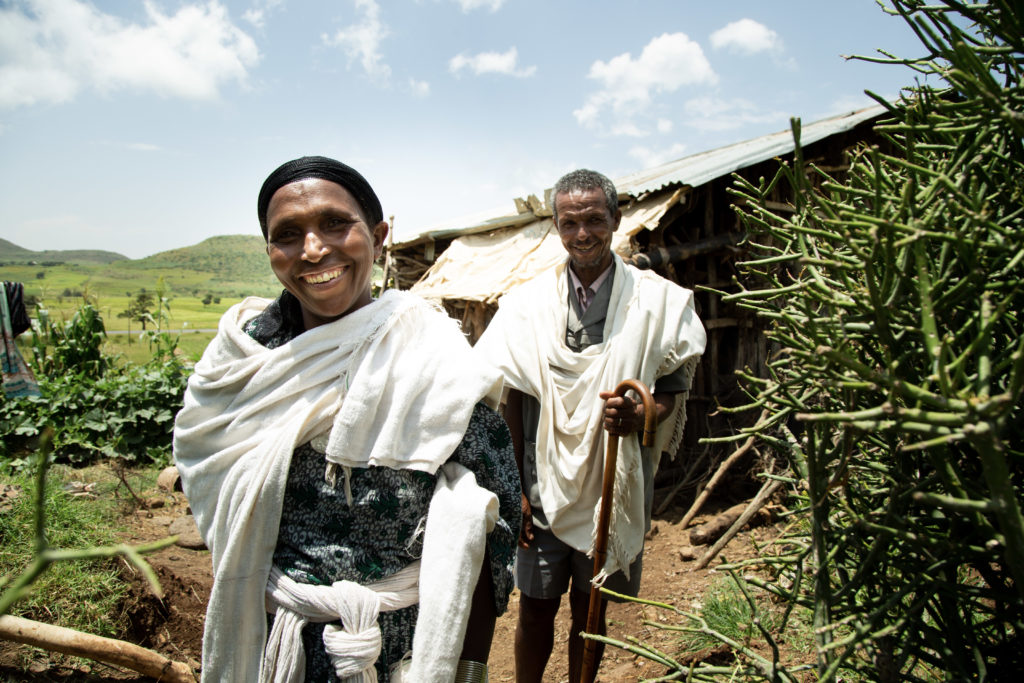
To help prevent future issues, IFDC researches and develops agricultural methods and soil fertility technologies that benefit the soil, the planet, and people. According to IFDC’s Vice President of Research, Dr. Upendra Singh, “Healthy soils enable producers around the world to feed their communities and will ensure future generations are able to do the same. IFDC focuses on soil research that encompasses resiliency, productivity, and the needs of global food systems. We aim to increase the awareness of soil health’s importance and demonstrate the soil’s ability to improve livelihoods, mitigate climate change, and boost sustainable production around the world.”
At IFDC, we’re on a mission to save the planet’s soil health, especially in places like sub-Saharan Africa and South Asia. In 2021, we joined the United Nations Food Systems Summit Coalition of Action for Soil Health (CA4SH). CA4SH aims to improve soil health globally by addressing critical implementation, monitoring, policy, and public and private investment barriers that constrain farmers from adopting and scaling healthy soil practices.
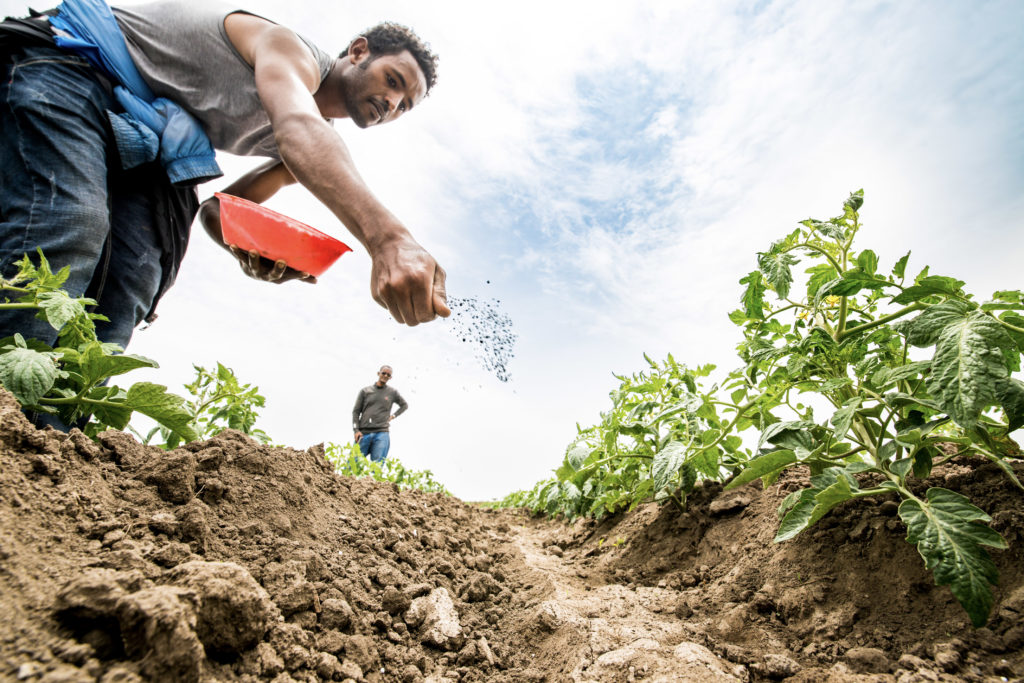
Improving soil health is at the very heart of reaching potential crop yields and conquering hunger, malnutrition, and poverty. Our research is a core component of achieving this goal; we take concepts from idea to impact by implementing tools, technologies, and methodologies uniquely designed and adjusted to meet local conditions and close traditional development gaps.
IFDC’s Soil SMaRT approach is being used to identify and map soil nutrient deficiencies so recommendations for sustainable soil fertility management can be developed and disseminated. We implement decision support tools (such as VIFAA) that help governments, farmers, and extension services apply agricultural research supported by crop modeling, soil analyses, and weather and market information. Overall, IFDC works to develop novel soil health technologies through an improved understanding of soil-plant-ecosystem relationships.
For Earth Day 2022, join IFDC in celebrating the importance of investing in our planet and its soil health. Check out EarthDay.org to find out how you can take action for Earth and join in our festivities on April 22.


